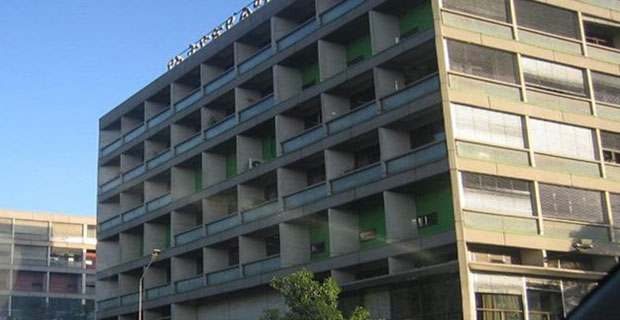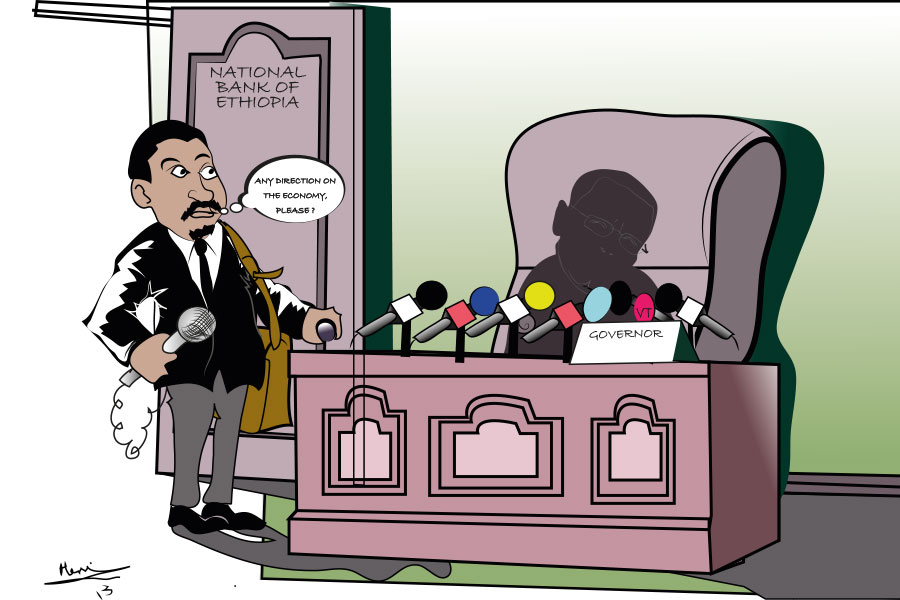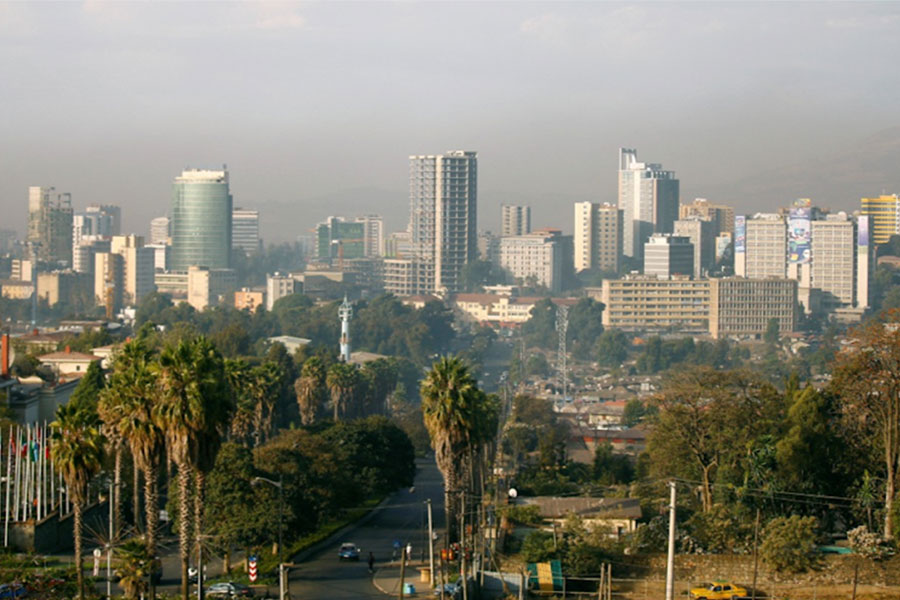
Jun 18 , 2022
By Christian Tesfaye
The US Federal Reserve is not playing around anymore. After months of insisting that inflation is “transitory,” it has now declared war, firing what amounts to weapons of mass destruction at American economic activity. Last week, it raised federal funds interest rates by three-quarters of a percentage point, the biggest hike in decades. The federal funds rate, the interest rate at which banks borrow from one another from their reserve accounts, is a benchmark used to determine rates in the rest of the economy. When it goes up, so do interest rates for mortgages, bonds and credit cards.
The rate hike is the most serious move taken by the Federal Reserve under Jerome Powell, its chair, to combat inflation. Until now, there was a slight possibility that a “soft landing,” taming inflation without pushing the country into recession, could be realised. The gloves were off after the consumer price index (CPI) came in higher than expected last month. The Federal Reserve hiked by 0.75pc and indicated it might do so again. Most economists now expect a recession – two consecutive quarters of negative growth.
This is big for the US and the rest of the world. As the theme seems to be these days, it spells even more trouble for developing countries. A recession will mainly have short-term consequences. When the US is less resilient, there is less demand for exporters, and less remittances and tourism receipts will come from there. But the rate hikes will have long-term impacts, which may last as long as inflation persists.
A major headache is capital flight to rich countries. Over time, it will not be only the US increasing interest rates. It will also be other developed countries – if it is not to combat inflation, it will be to protect against capital flight from their own countries. The cost of capital will go up as the competition for loanable funds heats up. Without competitive economies, most developing countries will find it harder to attract capital for investment, infrastructure financing or economic development.
Debt servicing costs will also grow. High-interest rates will attract capital to countries such as the US. Investors will dump assets held in other countries to invest in the US because the returns will be higher. When capital rushes into a few countries, the currencies of those countries strengthen. If that country is the US, dollar-denominated debt becomes expensive to service, a headache that countries such as Ethiopia do not need.
Capital flight is already occurring and several developing countries are struggling with foreign currency problems (partly because the import of basic items has also become expensive). The examples are many and varied. The most talked about country in this instance is Sri Lanka, which is getting coverage. The country faces disaster and has already defaulted on its debt. Worse still, it has inspired a socio-political crisis. In Kenya, edible oil prices rose as a major producer cut production, citing a dollar shortage to import inputs. In Pakistan, officials called for a cut back on chai, a popular drink made from tea leaves (which are imported). In Ethiopia, black market dollar rates have gone up to record highs.
When so much is at stake, then, much of the world finds itself in a strange position of wishing Chair Powell a stroke of good luck on the war he is waging against inflation. He is on the front lines of the battle, commanding the forces of interest rates and open market operations against a formidable foe. At the same time, he is trying not to damage US economic growth. Let us hope he pulls off this juggling act for all our sakes.
PUBLISHED ON
Jun 18,2022 [ VOL
23 , NO
1155]


Verbatim | Nov 30,2024

Fortune News | Dec 13,2021

Fortune News | Mar 09,2019

Covid-19 | May 23,2020

Fortune News | Dec 04,2021

Radar | Jan 03,2021

Fortune News | Aug 22,2020

Fortune News | Jun 26,2021

Editorial | Aug 21,2021

Radar | Apr 13,2025

My Opinion | 131987 Views | Aug 14,2021

My Opinion | 128376 Views | Aug 21,2021

My Opinion | 126313 Views | Sep 10,2021

My Opinion | 123931 Views | Aug 07,2021

Dec 22 , 2024 . By TIZITA SHEWAFERAW
Charged with transforming colossal state-owned enterprises into modern and competitiv...

Aug 18 , 2024 . By AKSAH ITALO
Although predictable Yonas Zerihun's job in the ride-hailing service is not immune to...

Jul 28 , 2024 . By TIZITA SHEWAFERAW
Unhabitual, perhaps too many, Samuel Gebreyohannes, 38, used to occasionally enjoy a couple of beers at breakfast. However, he recently swit...

Jul 13 , 2024 . By AKSAH ITALO
Investors who rely on tractors, trucks, and field vehicles for commuting, transporting commodities, and f...

Jul 5 , 2025
Six years ago, Ethiopia was the darling of international liberal commentators. A year...

Jun 28 , 2025
Meseret Damtie, the assertive auditor general, has never been shy about naming names...

Jun 21 , 2025
A well-worn adage says, “Budget is not destiny, but it is direction.” Examining t...

Jun 14 , 2025
Yet again, the Horn of Africa is bracing for trouble. A region already frayed by wars...

Jul 6 , 2025 . By BEZAWIT HULUAGER
The federal legislature gave Prime Minister Abiy Ahmed (PhD) what he wanted: a 1.9 tr...

Jul 6 , 2025 . By YITBAREK GETACHEW
In a city rising skyward at breakneck speed, a reckoning has arrived. Authorities in...

Jul 6 , 2025 . By NAHOM AYELE
A landmark directive from the Ministry of Finance signals a paradigm shift in the cou...

Jul 6 , 2025 . By NAHOM AYELE
Awash Bank has announced plans to establish a dedicated investment banking subsidiary...